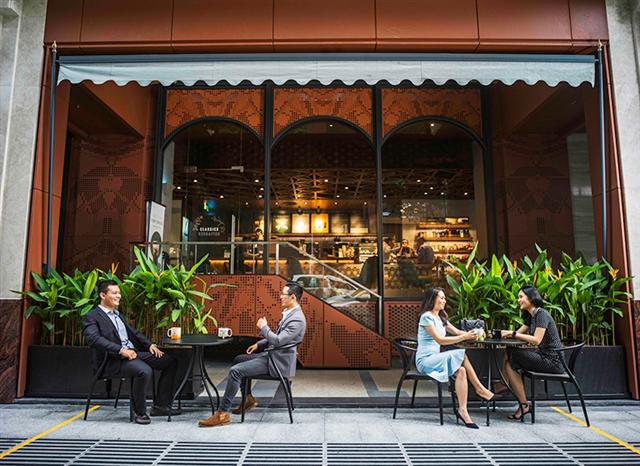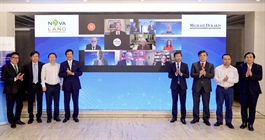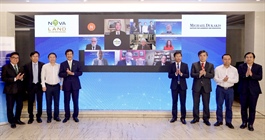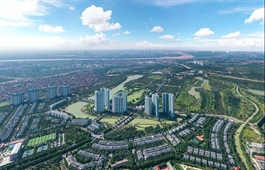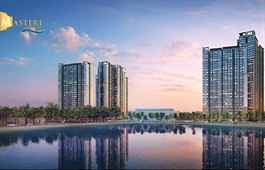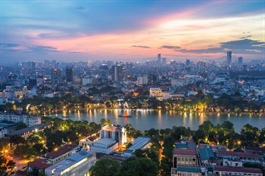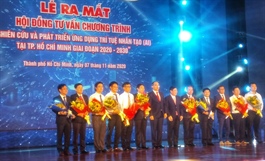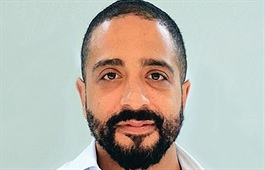Frasers Property Vietnam pushes green standards at flagship project
Frasers Property Vietnam pushes green standards at flagship project
Singaporean developer Frasers Property is one of Vietnam’s pioneering developers which has incorporated green factors into its projects across the country, complying with the highest qualifications on building and operating projects.
For the first time in more than two decades, Frasers Property’s Melinh Point is being renovated through a major asset enhancement initiative (AEI) to position it as the best Grade A boutique office with improvements in reliability, energy efficiency, and sustainability in Vietnam.
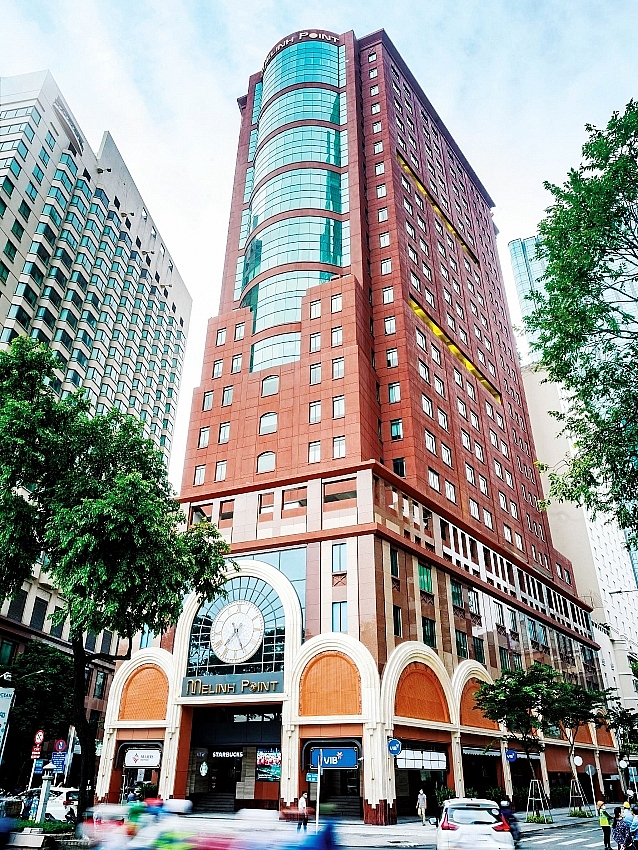
Melinh Point is targeting to achieve the Green Mark Platinum Certification accorded by Singapore’s Building and Construction Authority; a first for operational office buildings in Vietnam
|
Following the completion of the AEI, Melinh Point is targeting to achieve the prestigious Green Mark Platinum Certification accorded by Singapore’s Building and Construction Authority (BCA); a first for operational office buildings in Vietnam.
Under the AEI, Melinh Point will see a plethora of new green features by adding energy-efficient assets and working on the transition to lower-carbon energy sources to provide a healthy and fresh working atmosphere. The developer is also looking into the feasibility of converting areas of the development into a business centre to provide tenants with essential facilities like meeting and conference rooms and training spaces.
Launched in 2005, the Green Mark certification scheme is a rating system that evaluates constructions’ environmental impact and performance. The rising trend of building owners going for higher-tier Green Mark certifications (Platinum) is indicative of the growing industry awareness of the positive impact of green buildings.
According to the BCA, the Green Mark certification is intended to promote sustainability in the built environment and raise environmental awareness among developers, designers and builders when they start project conceptualisation and design, as well as during construction.
Clear roadmap to sustainability
Since Frasers Property Group embarked on its green building journey in 2006, it has developed over 200 properties and projects globally that achieved green building certifications. The developer shows an unwavering commitment to increasing its portfolio of green properties each year. As part of the group’s sustainability priorities, it manages potential climate risks by operating energy-efficient assets and working on the transition to lower-carbon energy sources at their assets.
As the cornerstone of the group’s strategy, sustainability is a key contributor to Frasers Property’s success. Green and responsible solutions complementing top-of-the-line amenities and quality living environment is the unifying idea at the core of all things the company has built so far.
The group believes that it is in the best position in creating communities and the experiences that matter to the members of the communities it interacts with. It recognises this to be a privilege, one that comes with responsibilities.
|
According to Lim Hua Tiong, CEO of Frasers Property Vietnam, as part of its development strategy, the company aims to leverage opportunities provided by sustainability to enhance the experiences of both its customers and its employees.
Hua Tiong added that Frasers Property Vietnam aspires to be a leader and set industry benchmarks in building sustainable communities. In addition, it will continue to embrace a progressive mindset and collaborate with its stakeholders on a holistic sustainability journey towards fulfilling its aspirations.
“Sustainability priorities evolve constantly. As such, Frasers Property Vietnam needs to be flexible and resilient,” he added.
|
Frasers Property Vietnam is a part of the global Frasers Property Group that develops, owns, and manages a diverse, integrated portfolio of properties with SGD38.7 billion in assets in more than 70 cities around the world as of September 30, 2020. Headquartered in Singapore and listed on the Main Board of the Singapore Exchange (SGX-ST), group assets range from residential, retail, commercial, and business parks to logistics and industrial property in Southeast Asia, Australia, Europe, and China. After almost 20 years in Vietnam, the group’s presence includes Melinh Point – a 21-storey Grade A boutique office building in District 1, and Q2 Thao Dien, a luxurious mixed-use development in District 2. Frasers Property’s hospitality business is also present in Vietnam, with Fraser Suites Hanoi and Capri by Fraser. |
Setting out sustainability priorities for the group through 2030, the Sustainability Framework is driven by three pillars, namely Acting Progressively, Consuming Responsibly, and Focusing on People. These three pillars form a multi-disciplinary approach that recognises 13 corresponding environmental, social, and governance (ESG) focus areas. Driving a sustainability agenda is as important as driving the group’s business strategy and operational agenda.
Besides adopting and continuously improving environmentally friendly and advanced technologies in its projects in Vietnam, the group is mapping out a long-term sustainable development plan with clear targets set for the future.
Frasers Property Vietnam aims to have 80 per cent of its buildings green-certified by 2024 and to achieve net-zero carbon emissions by 2050. These ambitious targets are challenging but well within reach by following its detailed roadmap of corporate actions.
|
Melinh Point will be incorporating the following green features: * Renovating the outdated chiller plant system that is reaching the end of its life cycle, resulting in heightened energy consumption. Air-cooled chiller systems will be replaced with water-cooled ones to improve system reliability, energy efficiency, and reduce energy consumption by 23 per cent; * Installing 100 per cent high-efficiency, power-saving LED lights in common areas; * Modernising five elevators by adopting the latest high-efficiency regenerative technology to save power during operation; * Upgrading water fixtures to 3-tick (“excellent”) standards of Singapore’s Water Efficient Labelling Scheme (WELS) and installing smart taps with automatic sensors in restrooms; * Replacing air-conditioning filters with highly effective filters with a Minimum Efficiency Reporting Value (MERV) rating of 14 to improve air quality and provide a crystal-clear atmosphere in the entire building. * Setting up waste management and recycling stations with clear communications urging community action to separate all waste at the source into food, recyclable, and hazardous waste. |


